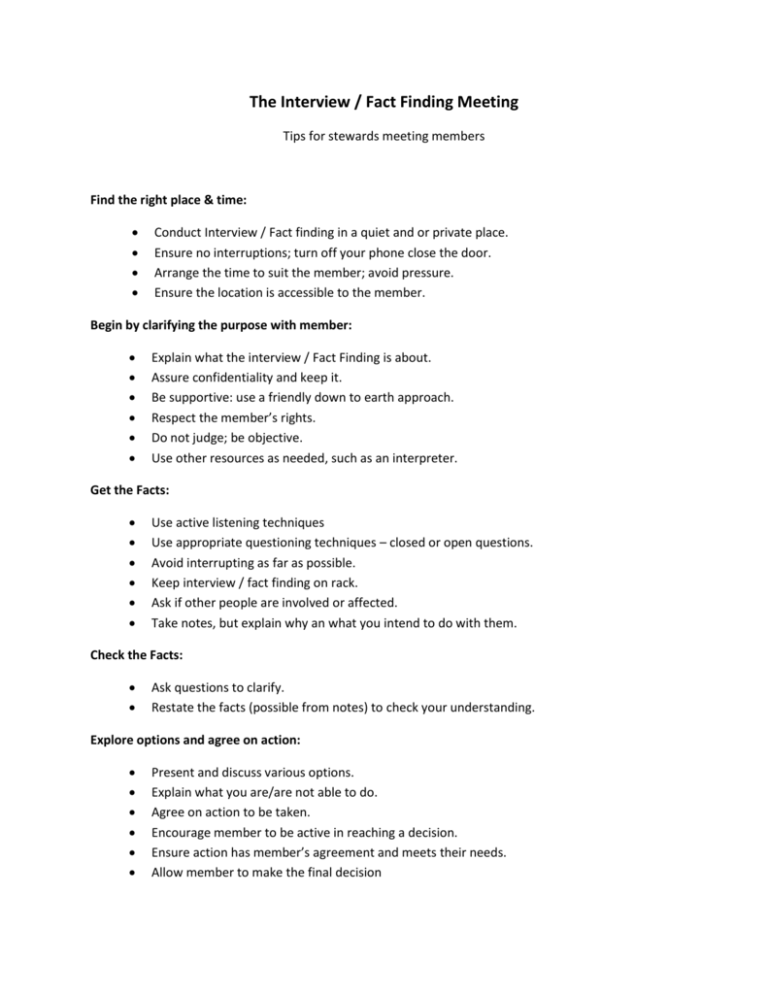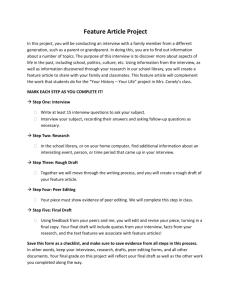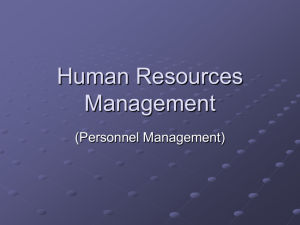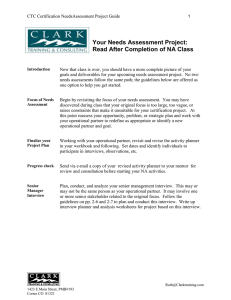Fact Finding / Interview
advertisement

The Interview / Fact Finding Meeting Tips for stewards meeting members Find the right place & time: Conduct Interview / Fact finding in a quiet and or private place. Ensure no interruptions; turn off your phone close the door. Arrange the time to suit the member; avoid pressure. Ensure the location is accessible to the member. Begin by clarifying the purpose with member: Explain what the interview / Fact Finding is about. Assure confidentiality and keep it. Be supportive: use a friendly down to earth approach. Respect the member’s rights. Do not judge; be objective. Use other resources as needed, such as an interpreter. Get the Facts: Use active listening techniques Use appropriate questioning techniques – closed or open questions. Avoid interrupting as far as possible. Keep interview / fact finding on rack. Ask if other people are involved or affected. Take notes, but explain why an what you intend to do with them. Check the Facts: Ask questions to clarify. Restate the facts (possible from notes) to check your understanding. Explore options and agree on action: Present and discuss various options. Explain what you are/are not able to do. Agree on action to be taken. Encourage member to be active in reaching a decision. Ensure action has member’s agreement and meets their needs. Allow member to make the final decision During the Interview / Fact Finding meeting 1. Be approachable. It is not easy any person to admit that problems have got him/her down and that he/she must appeal for help. 2. Be empathetic when a member reveals information that was difficult to talk about. 3. Be a good listener and give full attention to the person seeking help. Often, people find considerable help in simply stating their problems out loud 4. Be able to keep a confidence. Union members must have faith that their problems will not be told to others. 5. Don’t be influenced personal prejudices. Don’t be anxious to help a person you like and indifferent to a person you dislike. 6. Don’t try to be a psychiatrist. It is not your job to solve the member’s problem. Remember, psychiatrists and psychologists study for years to learn their trade. 7. Recognize the right of the member to make his/her own decision’s. You can offer a possible line of action, a person or an agency to approach, but if a worker decides not to accept the advice, it is his/her decision. 8. Be honest. Do not say you understand if you don’t. Don’t offer false assurances or make promises you can’t keep. 9. Use open-ended questions for reluctant members 10. Don’t engage in a “twenty questions” session 11. Remember not to probe for information that is NOT relevant to helping the process











